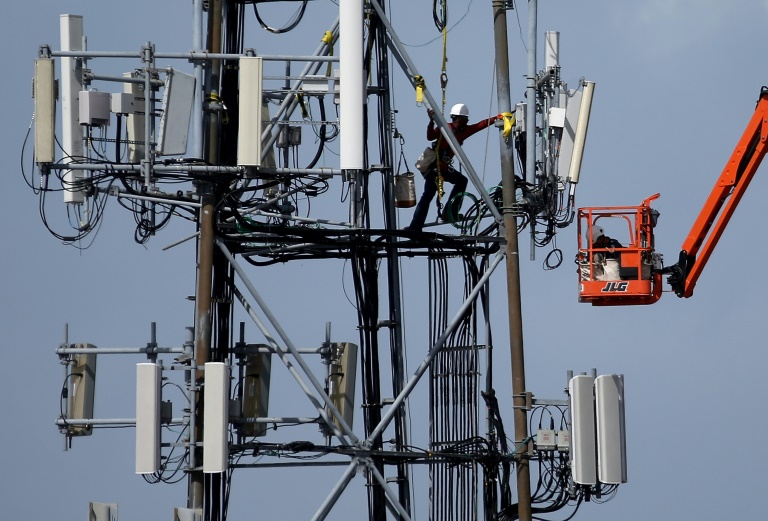AFP
Interest rate hikes are forcing mobile operators to scale back investment in 5G networks, with equipment manufacturer Ericsson reporting Friday a rare net quarterly loss and Nokia lowering its outlook.
Network equipment makers feel the pain when mobile phone operators scale back investment in 5G networks, with Ericsson reporting Friday a rare quarterly net loss and Nokia lowering its outlook.
The news sent the shares of both companies down as much as nine percent on the Helsinki and Stockholm exchanges before trimming their losses.
Sweden’s Ericsson posted a net loss of 600 million kronor ($59 million) in the April through June quarter, compared to a profit of 4.7 billion kronor the same period last year.
The dip into the red was mostly due to a restructuring charge of 3.1 billion kronor related to its announcement of 8,500 job cuts globally in February as part of a cost cutting plan, the company said.
But it also posted an unexpected operational loss tied to a slowdown in purchases of its 5G mobile network equipment by operators in several countries, including the United States.
“We are confident that the market will recover” as three-quarters of base stations outside China have yet to updated to 5G and “Ericsson is well positioned to benefit from increased investments,” said chief executive Borje Ekholm in a statement.
“The exact timing of these increased network investments is, of course, in the hands of our customers, but we expect that the market will see a gradual recovery in late 2023 and improve in 2024.” he added.
However Ericsson’s Finnish rival Nokia wasn’t as confident about a rebound in the second half of this year, as it lowered its outlook.
“Customer spending plans are increasingly impacted by high inflation and rising interest rates along with some projects now slipping to 2024 — notably in North America,” Nokia said in a statement Friday.
The company said it now expected 2023 net sales to come in between -4.0 percent and +2.0 percent, compared to its previous forecast of growth of between 2.0 and 8.0 percent.
“The weaker demand outlook in the second half is due to both the macro-economic environment and customers’ inventory digestion,” it added.
Nokia is due to publish its second quarter results on July 20, but said preliminary figures show flat net sales of 5.7 billion euros.
Ericsson and Nokia, who along with Chinese giant Huawei are competing to provide the infrastructure for the global 5G market, have warned in recent months of a slowdown in investment by mobile network operations due to the global economic downturn.







